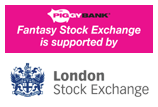 The City of LondonYou often hear about “The City” when people refer to the centre of big business and finance in London. In much the same way, we refer to Wall Street when talking about big business and finance in the US. It’s pretty evident that business and banking and all that goes with it happens in other places in Britain. The City of LondonWell, the City of London is just one mile square and, according to latest information, boasts around 9,200 regular inhabitants - people who actually live there (as opposed to those who work there).  After the Romans!Once the Ancient Romans had finished vanquishing the Brits, had put in a few roads, some sewage systems, laid foundations for towns and cities up and down the country, and had generally got a bit tired of beating us all up, they relaxed… and various locals, Saxons and Normans took over. All the while, and it was a long while - hundreds of years - the City of London maintained its distinct position as a centre for trade, primarily because of its geographical location on the Thames making it a superb port. And where you have a port, you have traders, who need bankers and money changers. And they need lawyers to draw up bills of sale, and contracts. Then you need accountants to count the money and figure out how much tax has to be paid on the profits. And, of course, all these good people have to eat. So you get Starbucks! Not of course in the year 900 or even 1900.  London, Home of the Money Mint!Right through its history, money mints were situated in London. In 670 AD the first mint since the Romans was set up in what is now the Strand and by the year 920 London had become the most important commercial centre in Britain with eight ‘moneyers’ - bankers - within its streets.  London, Home of the World’s Banks!If you’re Chinese from Beijing or Indian from Mumbai and you want a loan, the odds are that at least 20% of your banks’ money will have been arranged by a London banking institution. And this is only the tip of the financial iceberg - there are around 255 foreign banks in London and hundreds of foreign companies listed on the London Stock Exchange, which supports our own Piggybank Fantasy Stock Exchange. Add to this the fact that 75% of the largest companies in the world, the so-called Fortune 500 have London offices. The Bank of England It’s clear why are these statistics are stratospheric. The City of London has built itself the greatest reputation probably in the World for stability and integrity - it does what it says it will do. And at the centre of it all is - the Bank of England. GlossaryBonds:A bond is a certificate issued by a company which oblige it to pay certain sums at certain times to the holder of the bond (a bit like a cheque). So, when someone buys a company’s bond, he or she is effectively lending that company money. The seller of the bond (the company) agrees to repay the loan at a specified time and at a specified rate of interest. Eurobonds:Bonds that have been issued in one country’s currency but traded outside of that country. Eurobonds are named after the currency they denominate. Examples are the Euro-yen or Euro-dollar bonds, trading respectively in the Japanese Yen and the US Dollar. They work in the same way as bonds (see above). Foreign Exchange Market:Like a stock exchange but one where people buy and sell foreign currencies - like US dollars, Japanese Yen and the euro. Foreign Equity:Stocks and shares of foreign companies being traded in London. Money Mints:Companies, printers, other institutions and those with special permission to manufacture notes and coins. (Like The Royal Mint and the Bank of England.) |
| Home | City Talk | The Biz of Showbiz | Go to my FSE | About | Contact |
|

|
| © 2006-2012 Piggybank Multimedia Limited, Under Licence. All Rights Reserved. Terms & Conditions | Website custom developed by Netfactors, London |











